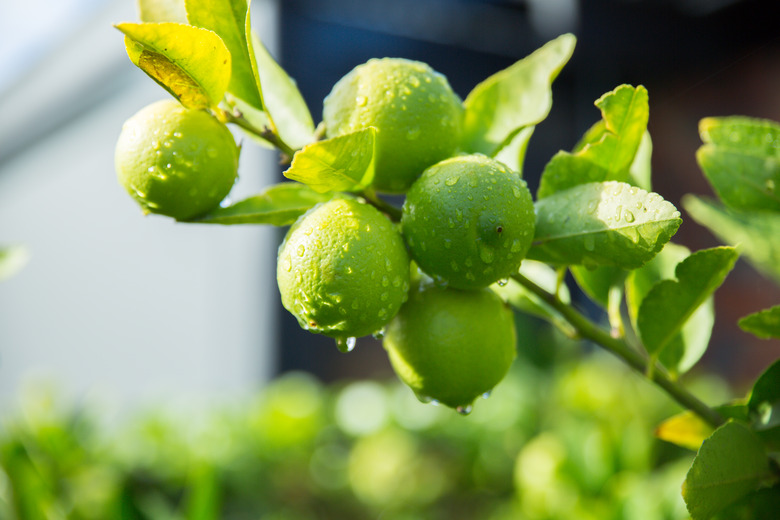Does Lime Repel Insects?
We may receive a commission on purchases made from links.
Insects can be a problem in the backyard and garden. While beneficial insects, like bees, butterflies, and ladybugs, work with gardeners to pollinate plants and reduce pest populations, other bugs are completely unwelcome. This includes flies, which can spread disease, and mosquitoes.
While some plants repel insects in the garden, citrus trees, including lime trees, are not likely to help keep pest insects away. Lime powder made from limestone is used as a pesticide, but it is not without issues.
Meet the Citrus Tree
Meet the Citrus Tree
There are dozens of types of citrus trees available for a home orchard. Among the most popular citrus are orange, lemon, and lime trees. Lemons and limes are considered acidic citrus and are very cold-sensitive. All citrus trees need lots of sunshine, at least eight hours a day for best fruit production. High humidity helps with citrus production as well.
While citrus trees, especially dwarf varieties, can be grown indoors in containers, they must be sited by a bright window if you want them to flower and fruit. All citrus require regular irrigation and also fertilizer, whether they are indoors or in the orchard. Container plants are especially thirsty.
Citrus Trees and Insect Pests
Citrus Trees and Insect Pests
D-limonene is a compound found in the peels and zest of oranges, limes, and lemons. Orange peels have the most, as the compound comprises some 97 percent of this rind's essential oils. The oil must be extracted from the fruit peels to have a significant effect on pests. Simply having a lime or orange tree in the orchard will not keep pests out of the garden.
D-limonene has been shown to be an effective insect repellent, and you can see it listed as an ingredient in many commercial, eco-friendly insect repellents. It is also used in citrus essential oils and in foods like sodas and desserts to provide a lemony flavor.
Limonene was first registered as an insecticide in 1958. It was, in fact, the first natural pesticide ingredient used in environmentally friendly pest control. Among its many benefits is the fact that it is not toxic to mammals, birds, and fish and doesn't injure honeybees. Today, it is included in products for flea and tick control for dogs and cats as well as insecticidal sprays, mosquito larvicides, and insect repellents.
Understand the Pros and Cons of Lime Powder
Understand the Pros and Cons of Lime Powder
Though lime powder has the word "lime" in it, it is not made from or related to the citrus fruit. Instead, it is dry powder, also called hydrated lime, or calcium hydroxide. It is crystalline and manufactured by treating quicklime with water in a process known as slaking. This converts oxides to hydroxides that can kill insect pests, including flies, squash bugs, aphids, flea beetles, cucumber bugs, and Colorado potato beetles.
The downside is that lime also exterminates beneficial insects. The powder works just the same way on bees and ladybugs as it does on the bugs you are trying to eliminate. It's wise to consult with a professional before opting to apply lime powder as a pesticide.
